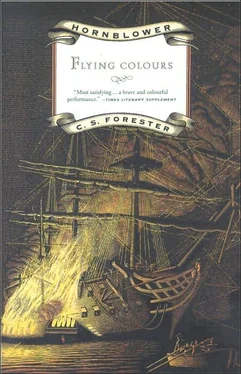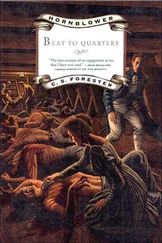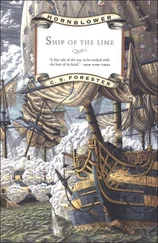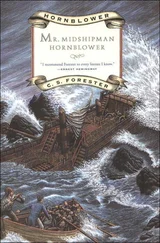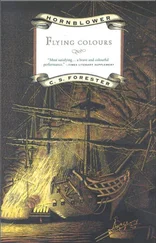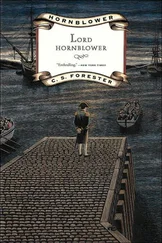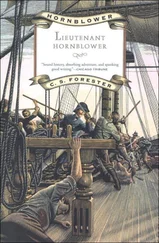Cecil Forester - Flying Colours
Здесь есть возможность читать онлайн «Cecil Forester - Flying Colours» весь текст электронной книги совершенно бесплатно (целиком полную версию без сокращений). В некоторых случаях можно слушать аудио, скачать через торрент в формате fb2 и присутствует краткое содержание. Год выпуска: 1989, ISBN: 1989, Издательство: Back Bay Books, Жанр: Исторические приключения, Путешествия и география, Морские приключения, на английском языке. Описание произведения, (предисловие) а так же отзывы посетителей доступны на портале библиотеки ЛибКат.
- Название:Flying Colours
- Автор:
- Издательство:Back Bay Books
- Жанр:
- Год:1989
- ISBN:0316289396
- Рейтинг книги:5 / 5. Голосов: 1
-
Избранное:Добавить в избранное
- Отзывы:
-
Ваша оценка:
- 100
- 1
- 2
- 3
- 4
- 5
Flying Colours: краткое содержание, описание и аннотация
Предлагаем к чтению аннотацию, описание, краткое содержание или предисловие (зависит от того, что написал сам автор книги «Flying Colours»). Если вы не нашли необходимую информацию о книге — напишите в комментариях, мы постараемся отыскать её.
Flying Colours — читать онлайн бесплатно полную книгу (весь текст) целиком
Ниже представлен текст книги, разбитый по страницам. Система сохранения места последней прочитанной страницы, позволяет с удобством читать онлайн бесплатно книгу «Flying Colours», без необходимости каждый раз заново искать на чём Вы остановились. Поставьте закладку, и сможете в любой момент перейти на страницу, на которой закончили чтение.
Интервал:
Закладка:
Those were white cottages drifting past the windows, and on the side towards the sea, perched on the grassy cliff, was the battery of Llanza. He could see a sentry dressed in blue and white; stooping and looking upwards he could see the French flag at the top of the flagstaff—Bush, here, had hauled it down not so many weeks ago. He heard the coachman’s whip crack and the horses quickened their pace; it was still eight miles or so to the frontier and Caillard must be anxious to cross before dark. The mountains, bristling here with pines, were hemming the road in close between them and the sea. Why did not Claros or Rovira come to save him? At every turn of the road there was an ideal site for an ambush. Soon they would be in France and it would be too late. He had to struggle again to remain passive. The prospect of crossing into France seemed to make his fate far more certain and imminent.
It was growing dark fast—they could not be far now from the frontier. Hornblower tried to visualize the charts he had often handled, so as to remember the name of the French frontier town, but his mind was not sufficiently under control to allow it. The coach was coming to a standstill; he heard footsteps outside, heard Caillard’s metallic voice saying, “In the name of the Emperor,” and an unknown voice say, “Passez, passez, monsieur.” The coach lurched and accelerated again; they were in France now. Now the horses’ hoofs were ringing on cobblestones. There were houses, one or two lights to be seen. Outside the houses there were men in all kinds of uniforms, and a few women picking their way among them, dressed in pretty costumes with caps on their heads. He could hear laughter and joking. Then abruptly the coach swerved to the right and drew up in the courtyard of an inn. Lights were appearing in plenty in the fading twilight. Someone opened the door of the coach and drew down the steps for him to descend.
Chapter Four
Hornblower looked round the room to which the innkeeper and the sergeant of gendarmerie had jointly conducted them. He was glad to see a fire burning there, for he was stiff and chilled with his long inactivity in the coach. There was a truckle bed against one wall, a table with a white cloth already spread. A gendarme appeared at the door, stepping slowly and heavily—he was the first of the two who were carrying the stretcher. He looked round to see where to lay it down, turned too abruptly, and jarred it against the jamb of the wall.
“Careful with that stretcher!” snapped Hornblower, and then, remembering he had to speak French, “Attention! Mettez le brancard là. Doucement!”
Brown came and knelt over the stretcher.
“What is the name of this place?” asked Hornblower of the innkeeper.
“Cerbêre. Hôtel Iéna, monsieur,” answered the innkeeper, fingering his leather apron.
“Monsieur is allowed no speech with anyone whatever,” interposed the sergeant. “He will be served, but he must address no speech to the inn servants. If he has any wishes, he will speak to the sentry outside his door. There will be another sentry outside his window.”
A gesture of his hand called attention to the cocked hat and the musket barrel of a gendarme, darkly visible through the glass.
“You are too amiable, monsieur,” said Hornblower.
“I have my orders. Supper will be served in half an hour.”
“I would be obliged if Colonel Caillard would give orders for a surgeon to attend Lieutenant Bush’s wounds at once.”
“I will ask him, sir,” said the sergeant, escorting the innkeeper from the room.
Bush, when Hornblower bent over him, seemed somehow a little better than in the morning. There was a little colour in his cheeks and more strength in his movements.
“Is there anything I can do, Bush?” asked Hornblower.
“Yes—”
Bush explained the needs of sick-room nursing. Hornblower looked up at Brown, a little helplessly.
“I am afraid it’ll call for two of you, sir, because I’m a heavy man,” said Bush apologetically. It was the apology in his tone which brought Hornblower to the point of action.
“Of course,” he said with all the cheerfulness he could bring into his voice. “Come on, Brown. Lift him from the other side.”
After the business was finished, with no more than a single half-stifled groan from Bush, Brown displayed more of the astonishing versatility of the British seaman.
“I’ll wash you, sir, shall I? An’ you haven’t had your shave to-day, have you, sir?”
Hornblower sat and watched in helpless admiration the deft movements of the burly sailor as he washed and shaved his first lieutenant. The towels were so well arranged that no single drop of water fell on the bedding.
“Thank ‘ee, Brown, thank ‘ee,” said Bush, sinking back on his pillow.
The door opened to admit a little bearded man in a semi-military uniform carrying a leather case.
“Good evening, gentlemen,” he said, sounding all his consonants in the manner which Hornblower was yet to discover was characteristic of the Midi. “I am the surgeon, if you please. And this is the wounded officer? And these are the hospital notes of my confrère at Rosas? Excellent. Yes, exactly. And how are you feeling, sir?”
Hornblower had to translate, limpingly, the surgeon’s question to Bush, and the latter’s replies. Bush put out his tongue, and submitted to having his pulse felt, and his temperature gauged by a hand thrust into his shirt.
“So,” said the surgeon. “And now let us see the stump. Will you hold the candle for me here, if you please, sir?”
He turned back the blankets from the foot of the stretcher, revealing the little basket which guarded the stump, laid the basket on the floor and began to remove the dressings.
“Would you tell him, sir,” asked Bush, “that my foot which isn’t there tickles most abominably, and I don’t know how to scratch it?”
The translation taxed Hornblower’s French to the utmost, but the surgeon listened sympathetically.
“That is not at all unusual,” he said. “And the itchings will come to a natural end in course of time. Ah, now here is the stump. A beautiful stump. A lovely stump.”
Hornblower, compelling himself to look, was vaguely reminded of the knuckle end of a roast leg of mutton; the irregular folds of flesh were caught in by half-healed scars, but out of the scars hung two ends of black thread.
“When Monsieur le Lieutenant begins to walk again,” explained the surgeon, “he will be glad of an ample pad of flesh at the end of the stump. The end of the bone will not chafe—”
“Yes, exactly,” said Hornblower, fighting down his squeamishness.
“A very beautiful piece of work,” said the surgeon. “As long as it heals properly and gangrene does not set in. At this stage the surgeon has to depend on his nose for his diagnosis.”
Suiting the action to the word the surgeon sniffed at the dressings and at the raw stump.
“Smell, monsieur,” he said, holding the dressings to Hornblower’s face. Hornblower was conscious of the faintest whiff of corruption.
“Beautiful, is it not?” said the surgeon. “A fine healthy wound and yet every evidence that the ligatures will soon free themselves.”
Hornblower realized that the two threads hanging out of the scars were attached to the ends of the two main arteries. When corruption inside was complete the threads could be drawn out and the wounds allowed to heal; it was a race between the rotting of the arteries and the onset of gangrene.
“I will see if the ligatures are free now. Warn your friend that I shall hurt him a little.”
Hornblower looked towards Bush to convey the message, and was shocked to see that Bush’s face was distorted with apprehension.
Читать дальшеИнтервал:
Закладка:
Похожие книги на «Flying Colours»
Представляем Вашему вниманию похожие книги на «Flying Colours» списком для выбора. Мы отобрали схожую по названию и смыслу литературу в надежде предоставить читателям больше вариантов отыскать новые, интересные, ещё непрочитанные произведения.
Обсуждение, отзывы о книге «Flying Colours» и просто собственные мнения читателей. Оставьте ваши комментарии, напишите, что Вы думаете о произведении, его смысле или главных героях. Укажите что конкретно понравилось, а что нет, и почему Вы так считаете.
